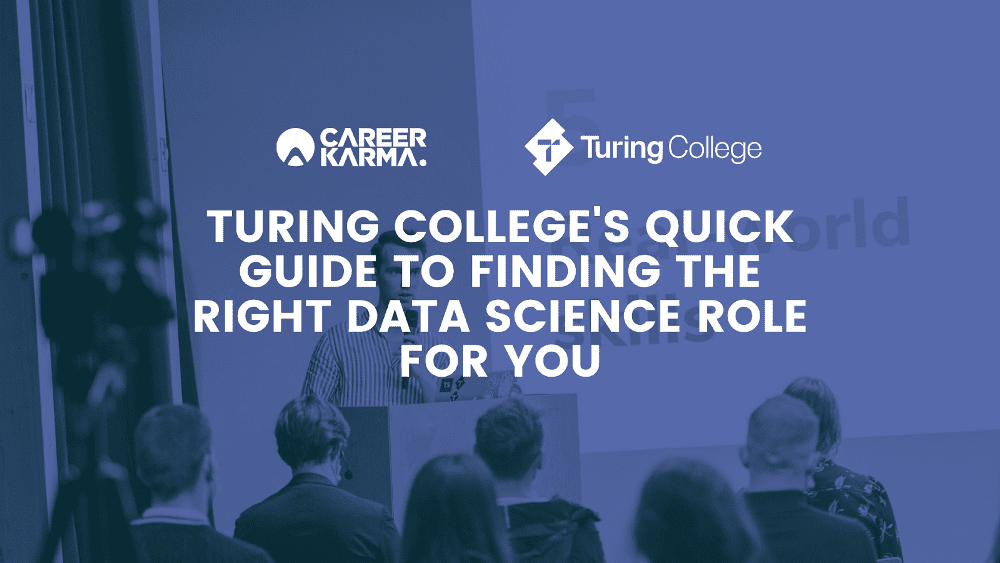If you do a quick Google search on data science, you’ll find dozens of different definitions. Companies and organizations also define their data scientist roles differently, based on their own understanding and expectation of the role. Some organizations regard it as an engineering role, while others give the title to statistical analysis experts. The data science field itself is relatively new and rather broad, so it’s challenging to sum it up into one single definition.
One thing that everyone can agree on is that roles related to data science are increasingly in demand. Glassdoor ranks data scientists as #2 in its 50 Best Jobs in America for 2021. LinkedIn has also reported that hiring growth for this role has grown 37 percent annually since 2016. As more and more companies understand the importance of data science, the need for data scientists continues to grow.
What Is Data Science?
Because there are so many interpretations of what data science is, let’s use Turing College’s definition of data science.
Dovydas Čeilutka, the Lead of Data Science on Turing College‘s Curriculum team, offers this definition: “Data science is the practice of using data to try to understand and solve real-world problems.”
This explanation is quite broad, especially when compared to lengthy descriptions of data science you can find online. However, the definition above gives us a general understanding of what data science is all about. Another helpful, and similar, definition of data science is from TechTarget.
“Data science, as defined by today’s industry professionals, is the study and use of data to inform business decisions and create new customer-facing products.”
Both definitions focus on the use of data to solve problems in a real-world setting. Oftentimes, understanding data is not done for the sake of academics. This is important to remember when looking at data science as a prospective career path.
Whichever definition of data science you choose to subscribe to, the importance of data science and the high demand for data scientists cannot be ignored. Data science is a growing field and is predicted to continue growing over the next few years.
The Roles of a Data Scientist
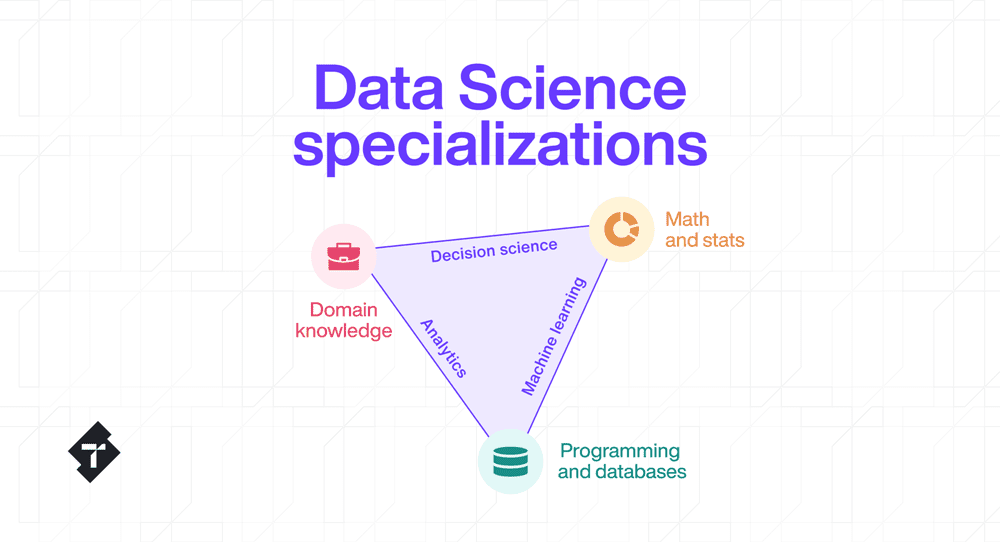
Due to the widespread confusion over the definition of data science, a company or organization can name its data scientist role however they see fit. Some might use titles such as data scientists and machine learning engineers interchangeably. Because of this, it’s more important to focus on the required skills, expectations, and technologies used in each role, more than the title given.
There are three popular specializations in data science, with each of them having different sets of roles and responsibilities.
1. Data Analyst
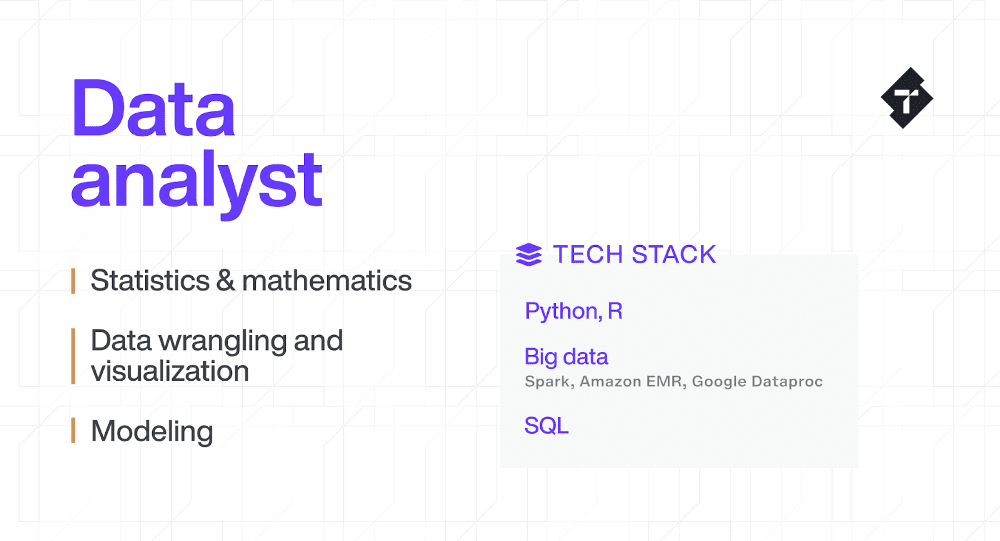
- Median salary: $62,000
Just as the name suggests, a data analyst scrutinizes data to tell a story. To do this, they must have a strong understanding of statistics and math and be comfortable with importing and interpreting data.
Modeling abilities are also indispensable for data analysts as they need to make complex data more understandable to others. If you enjoy discovering hidden insights from data, this would be a great role for you.
A typical day for a data analyst would involve going through data by developing and analyzing data systems, collecting and processing statistical analysis on large datasets, and creating reports to help management make decisions based on this data.
2. Data Engineer
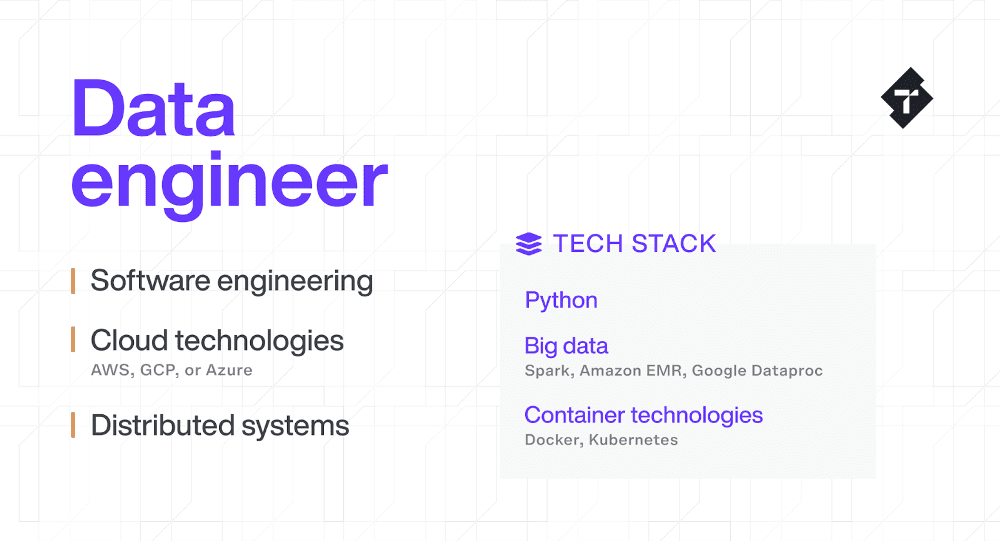
- Median salary: $92,500
A data engineer is responsible for building systems that store, consolidate, and retrieve data required for applications and systems. They also build and maintain big data platforms, which data analysts use. A strong foundation and expert knowledge in cloud technologies and software engineering such as Python, R, Scala, or Java are required.
Some people use the terms “data engineer” and “software engineer” interchangeably. Although both require programming skills, their roles within an organization are very different. Software engineers focus on building websites and apps for the end-user while data engineers build structures that house data sets.
If you become a data engineer, your everyday responsibilities might include designing and implementing data systems to guide AI and machine learning analytics and setting up and maintaining data infrastructure.
3. Machine Learning Engineer
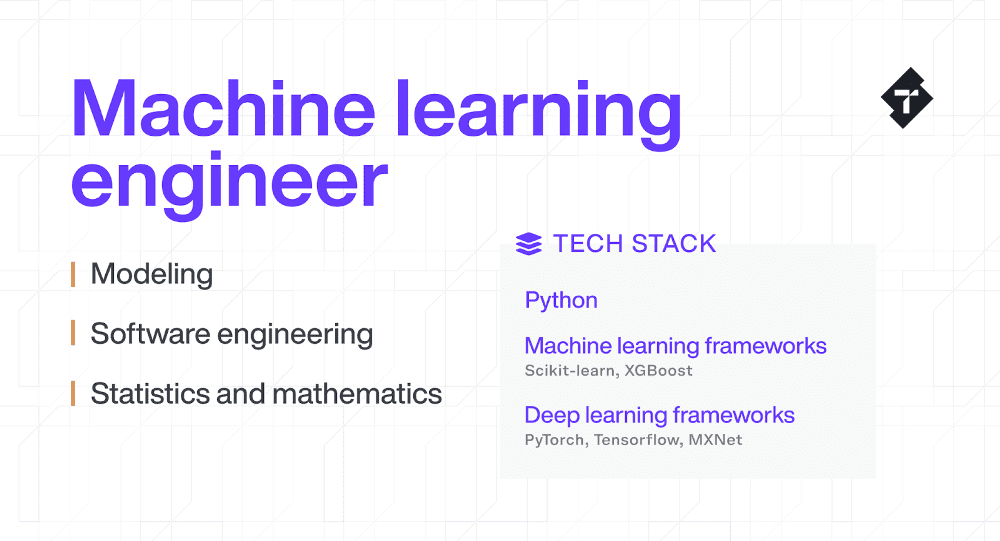
- Median salary: $113,000
Machine learning engineers must be good at building machine learning models to solve business challenges. They need excellent modeling, software engineering, and statistics skills. Knowing Python is a must, and they should also be proficient in model architecture, metrics interpretation app development, and infrastructure management.
Although both niches fall under the big umbrella of data science, it is important to note that this is a very different role from data analytics.
A typical day for a machine learning engineer might involve wrangling data, manipulating DataFrames, trying out various machine learning model architectures, tuning the hyperparameters of these machine learning models, and deploying the best models to production.
These are three of the most popular roles that a data scientist can have, but there are many others. A person who has studied data science can specialize in any of these, depending on what type of role, responsibility, and challenges they are looking for.
Is Turing College Right For You?
Many Turing College students are already working in tech and are looking to upskill themselves. Some are completely new to tech and are interested in entering the field of data science to start a new career. Whichever category you fall under, Turing College’s Data Science course might just be what you are looking for.
The self-paced course takes 8 to 12 months to complete on average and covers the following:
- Data Wrangling with Python: Advanced Python, Data Processing, Intro to EDA, Basic Visualisations and Charting, Linear Algebra Basics
- Data Analysis: SQL For Data Analysis, Advanced Visualisations and Charting, Inferential Statistical Analysis, Statistical Modelling, Linear Models
- Machine Learning: Tree-Based Models, Applied Modelling, Intro to Tensorflow, Intro to Time Series Analysis
- Deep Learning: Computer Vision, Natural Language Processing, Practical Deep Learning, TensorFlow
- Individual Specialisation Module: Students participate in Turing College in-house apprenticeship program that focuses on building real-world projects with hiring partners. Each project’s duration is approximately the size of a whole module and becomes the largest pieces in a student’s portfolio.
The course replicates how data science teams function in a workplace setting. Peer-to-peer learning is emphasized to help meet this goal. Learners study in batches, give and receive peer reviews, participate in standups, have one-on-one sessions with seniors, and work closely with industry professionals.
Turing College’s course is completely remote and is done on its own platform. It also emphasizes self-paced learning, so you can comfortably learn at a pace that works for you. Whether you need more time or finish ahead of the schedule, Turing College will support you all the way.
If you have other commitments, the course can be taken part-time and can typically be completed in nine to 12 months. Several financing options are available as well. Students can pay up front, make monthly installments, or defer payment until they are working via an Income Share Agreement (ISA).
Turing College Admissions Process
The school has a simple and clear structure of admissions:
- Apply: Fill out basic information and send it to Turing College.
- Technical Challenge: The school will send you a technical challenge to proceed with your application process.
- Interview: You’ll get on a call with admissions so they can learn more about your goals and traits.
- Welcome: After the evaluation process, you’ll receive a decision and you can start your data science program.
Turing College’s data science curriculum equips its graduates with all the skills they need to enter the field of data science and specialize further—whether they want to become a machine learning engineer or a data analyst. With an emphasis on preparing students for real-world experiences and a curriculum prepared by industry leaders, this course is a great way to start your data science career.
If you are ready to start your tech career or explore new opportunities in data science, you can take that first step by visiting the Turing College website and click on the Apply Now button.
About us: Career Karma is a platform designed to help job seekers find, research, and connect with job training programs to advance their careers. Learn about the CK publication.
